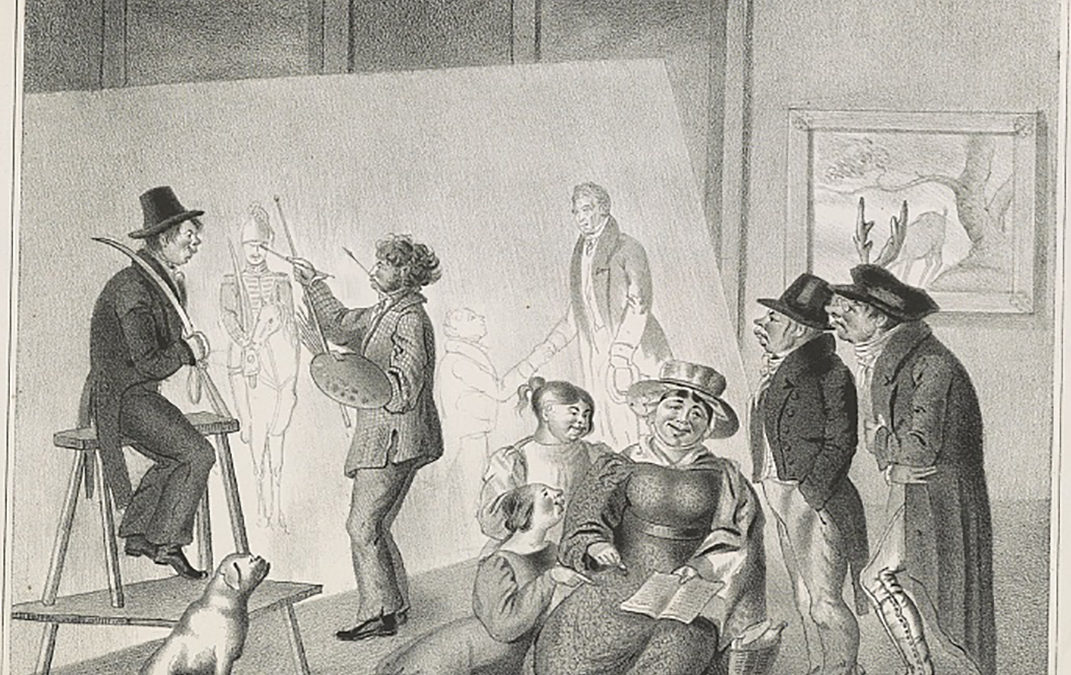 Sandwiches in the United States are mentioned first by Frances Trollope in Domestic Manners of the Americans. Their contents are unknown, and they were brought along for a hellish “pic-nic” party in the woods in the environs of Cincinnati circa 1829....
Sandwiches in the United States are mentioned first by Frances Trollope in Domestic Manners of the Americans. Their contents are unknown, and they were brought along for a hellish “pic-nic” party in the woods in the environs of Cincinnati circa 1829....
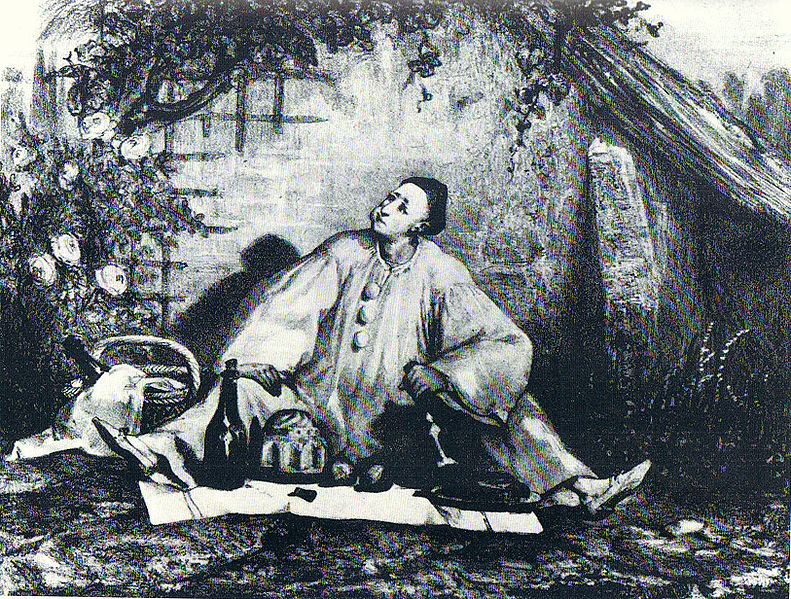 Bouquet’s Le repas de Pierrot, Pierrot’s Dinner, suggests a picnic. The scene depicts the actor Jean-Gaspard Deburau as Pierrot, a star stock character in the Théâtre des Funambules (Theater of the Tightrope Walkers). Pierrot always losses. From the look...
Bouquet’s Le repas de Pierrot, Pierrot’s Dinner, suggests a picnic. The scene depicts the actor Jean-Gaspard Deburau as Pierrot, a star stock character in the Théâtre des Funambules (Theater of the Tightrope Walkers). Pierrot always losses. From the look...
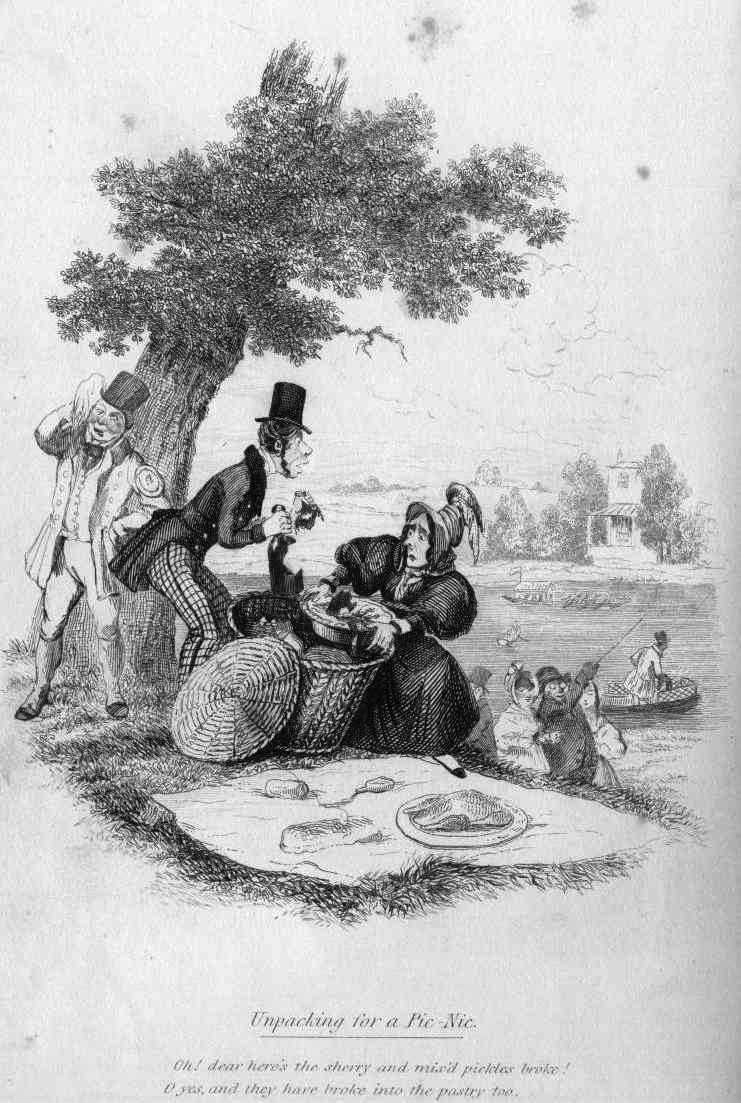 Seymour’s picnics sketches show a keen awareness of their potential for humor and satire. Especially if they’ve gone wrong. Unpacking for a Pic-Nic, for example, pokes fun at what breaks in a basket, as the legend makes amply clear, “Oh! Dear,...
Seymour’s picnics sketches show a keen awareness of their potential for humor and satire. Especially if they’ve gone wrong. Unpacking for a Pic-Nic, for example, pokes fun at what breaks in a basket, as the legend makes amply clear, “Oh! Dear,...
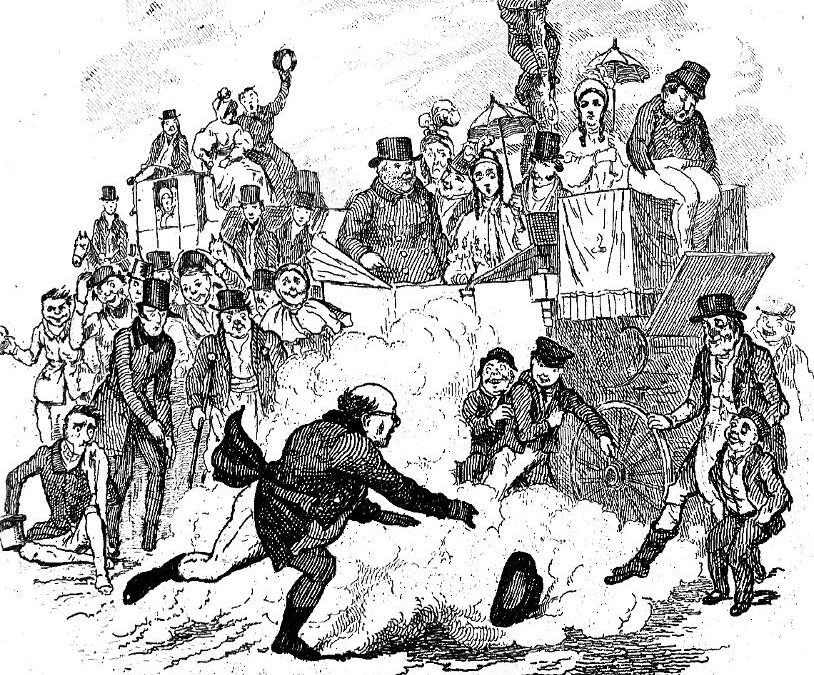 Dickens does not use the word picnic. But when the Wardles have lunch in their barouche, it’s an unmistakably a picnic: “In an open barouche, the horses of which had been taken out, the better to accommodate it to the crowded place, stood a stout old...
Dickens does not use the word picnic. But when the Wardles have lunch in their barouche, it’s an unmistakably a picnic: “In an open barouche, the horses of which had been taken out, the better to accommodate it to the crowded place, stood a stout old...
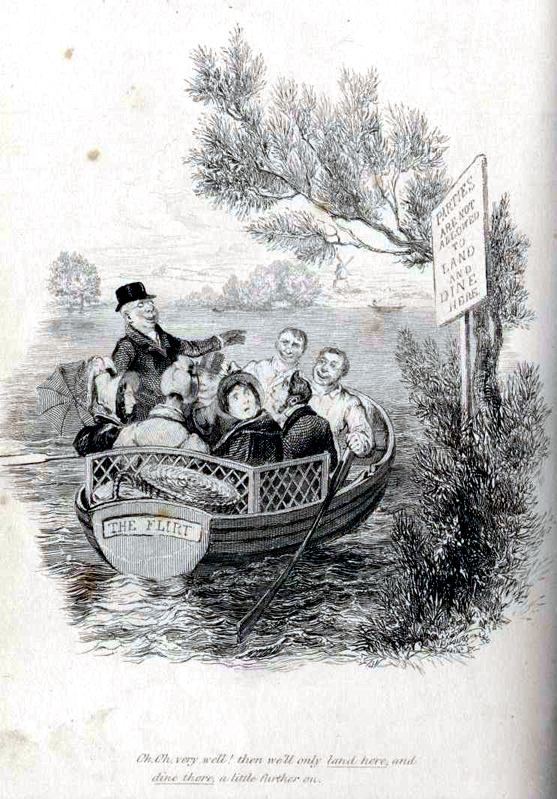 Seymour’s picnics are comic as in Unpacking for a Pic-Nic and “—A merry holiday party, forming a tolerable boat-load, and well provided with baskets of provisions, were rowing along the beautiful and picturesque banks that fringe the river’s side...
Seymour’s picnics are comic as in Unpacking for a Pic-Nic and “—A merry holiday party, forming a tolerable boat-load, and well provided with baskets of provisions, were rowing along the beautiful and picturesque banks that fringe the river’s side...
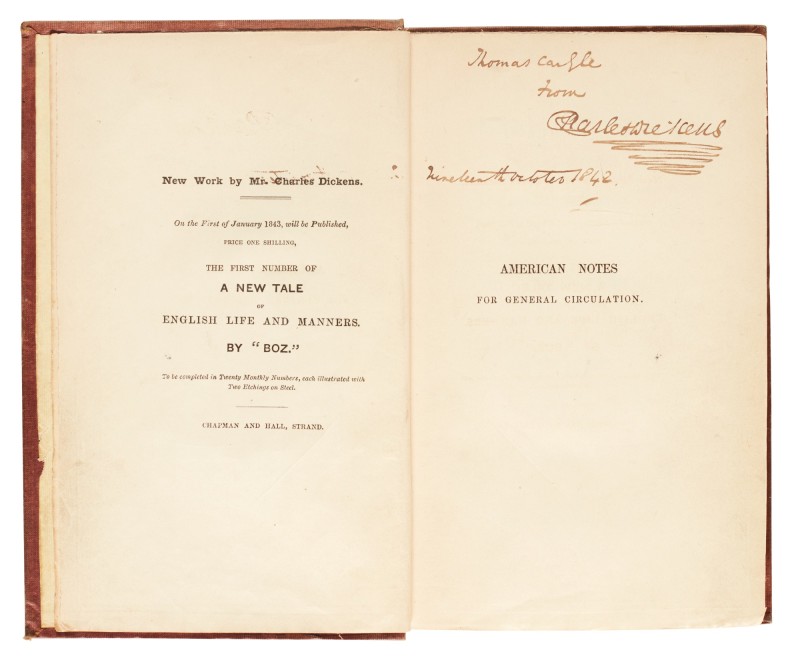 “A Jaunt to the Looking-Glass Prairie and Back” left Dickens with mixed feelings. The weather was hot and the journey tedious, but the picnic on Looking-Glass Prairie” was something Dickens wanted, mostly because he had been told that any sightseer...
“A Jaunt to the Looking-Glass Prairie and Back” left Dickens with mixed feelings. The weather was hot and the journey tedious, but the picnic on Looking-Glass Prairie” was something Dickens wanted, mostly because he had been told that any sightseer...
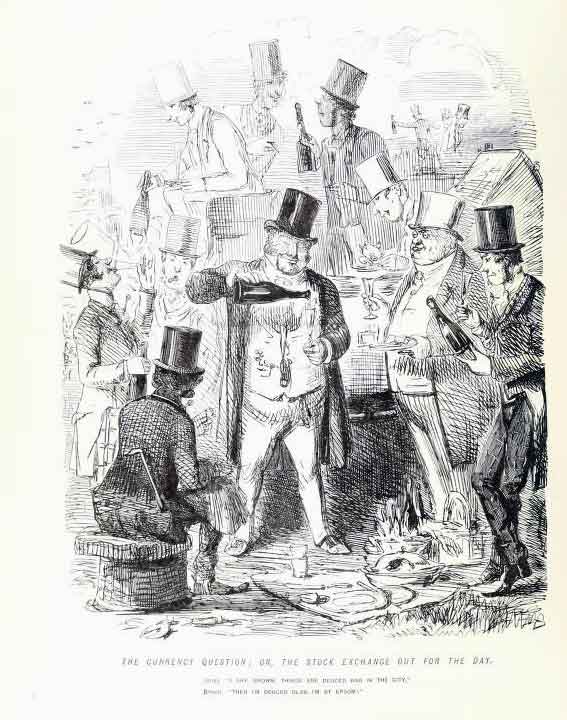 The London Stock Exchange’s reaction to a current financial panic is the butt of John Leech’s “The Currency Question, or The Exchange Out for a Day.” Leech implies picnicking in troubled times is laughable when buying and selling stocks is as...
The London Stock Exchange’s reaction to a current financial panic is the butt of John Leech’s “The Currency Question, or The Exchange Out for a Day.” Leech implies picnicking in troubled times is laughable when buying and selling stocks is as...
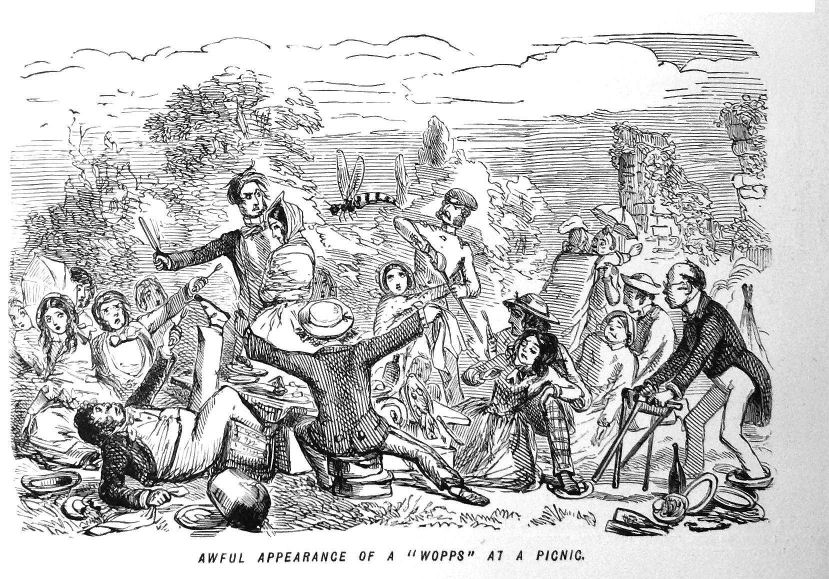 Knowing that any picnic might dissolve in chaos when attacked by a flying critter, readers of Punch, Britain’s premier satirical magazine, laughed at Leech’s mock tragedy. They might have also smiled patronizingly at the verbal pun “wopps,” the Cockney pronunciation...
Knowing that any picnic might dissolve in chaos when attacked by a flying critter, readers of Punch, Britain’s premier satirical magazine, laughed at Leech’s mock tragedy. They might have also smiled patronizingly at the verbal pun “wopps,” the Cockney pronunciation...
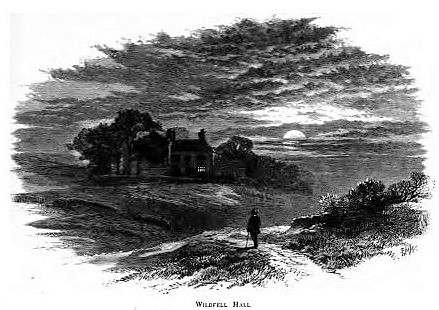 Brontë’s Wildfell Hall is a romantic potboiler. Helen Huntingdon, a good woman, married to an abusive man, Arthur Huntingdon, an abusive husband, runs away and takes the name, Helen Graham. At Wildfell Hall, Graham meets Gilbert Markham, who immediately falls in...
Brontë’s Wildfell Hall is a romantic potboiler. Helen Huntingdon, a good woman, married to an abusive man, Arthur Huntingdon, an abusive husband, runs away and takes the name, Helen Graham. At Wildfell Hall, Graham meets Gilbert Markham, who immediately falls in...
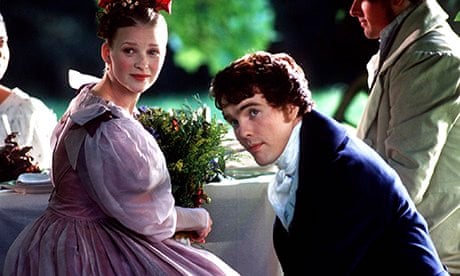 “Blissful” is Dickens’s word to describe Copperfield’s tenderest memories of Dora Spenlow’s picnic birthday party. He’s about nineteen and obsessed, getting up before 6 AM to buy flowers, so they are fresh. The picnic is near...
“Blissful” is Dickens’s word to describe Copperfield’s tenderest memories of Dora Spenlow’s picnic birthday party. He’s about nineteen and obsessed, getting up before 6 AM to buy flowers, so they are fresh. The picnic is near...











